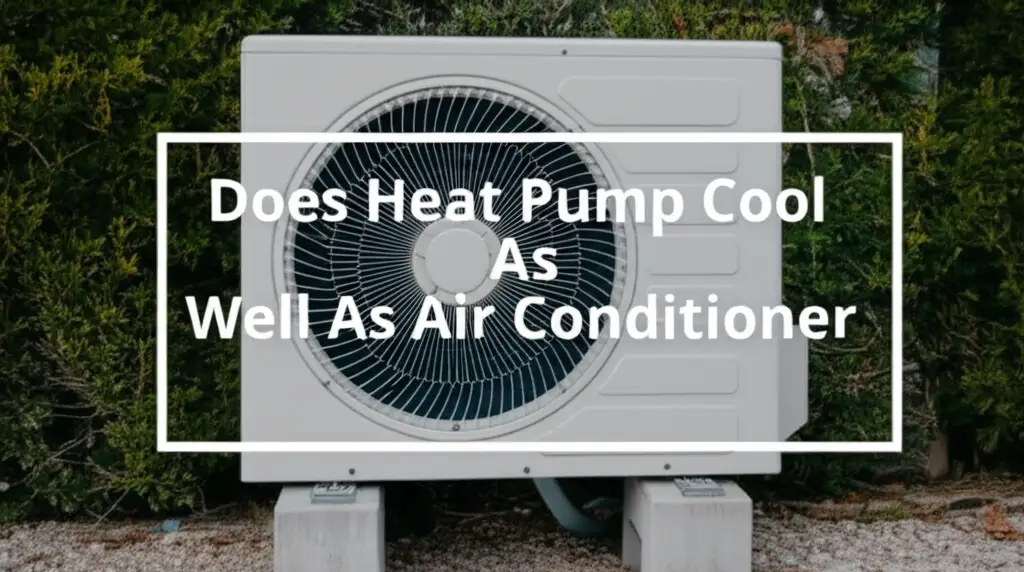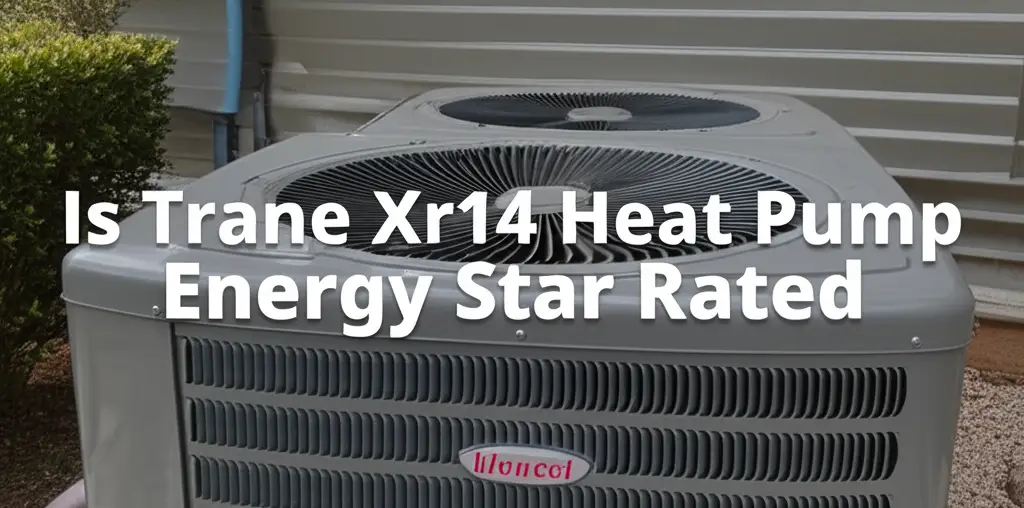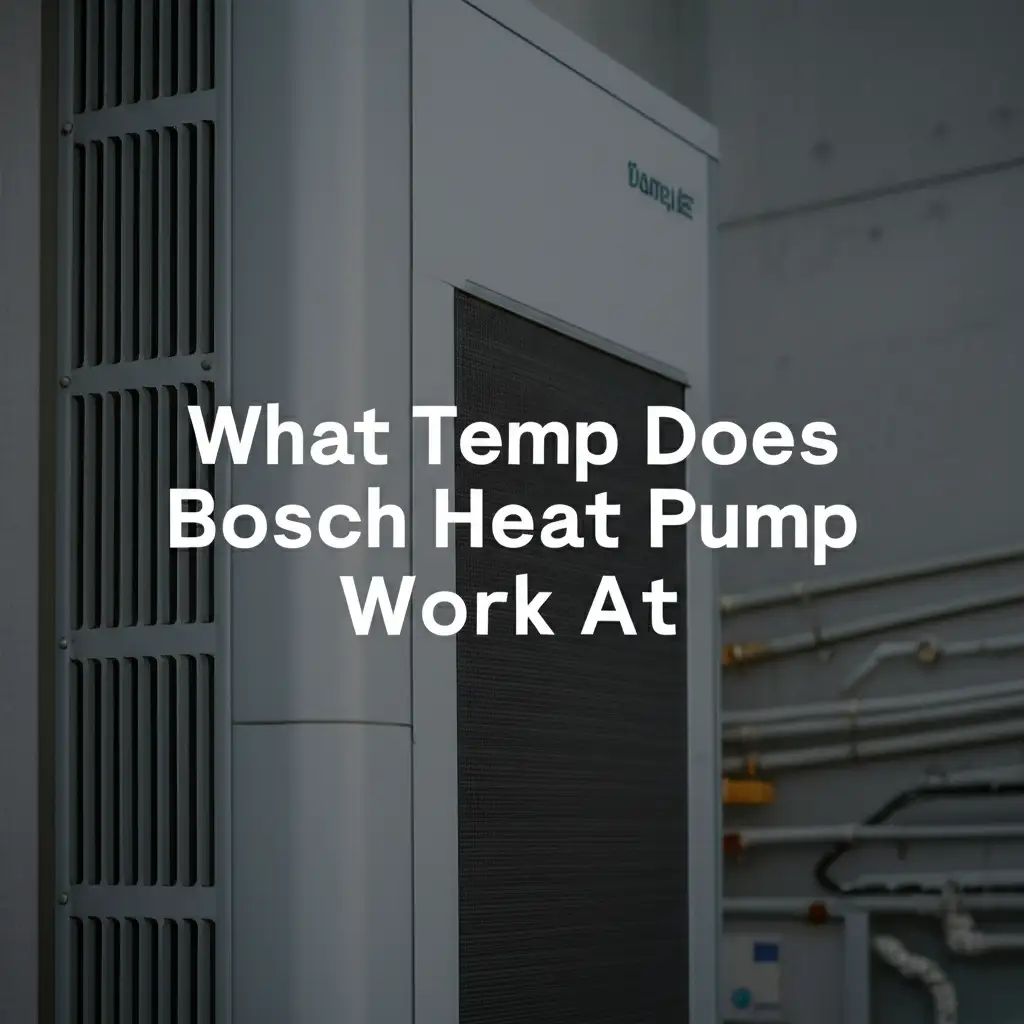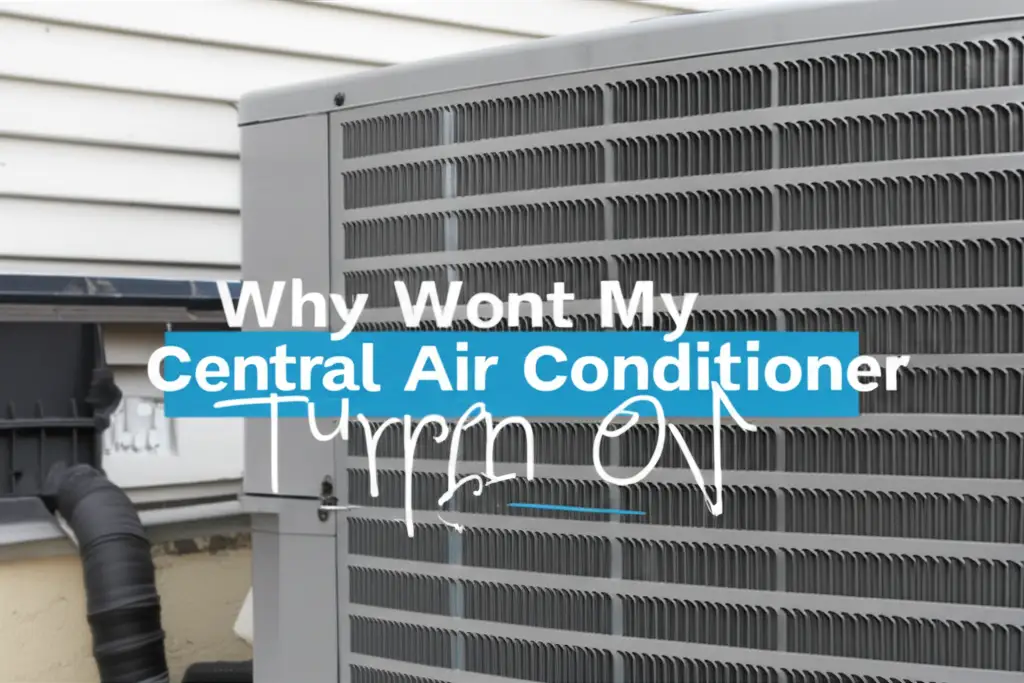· Todd Martin · HVAC Systems · 18 min read
Why Does Heat Pump Keep Turning On And Off
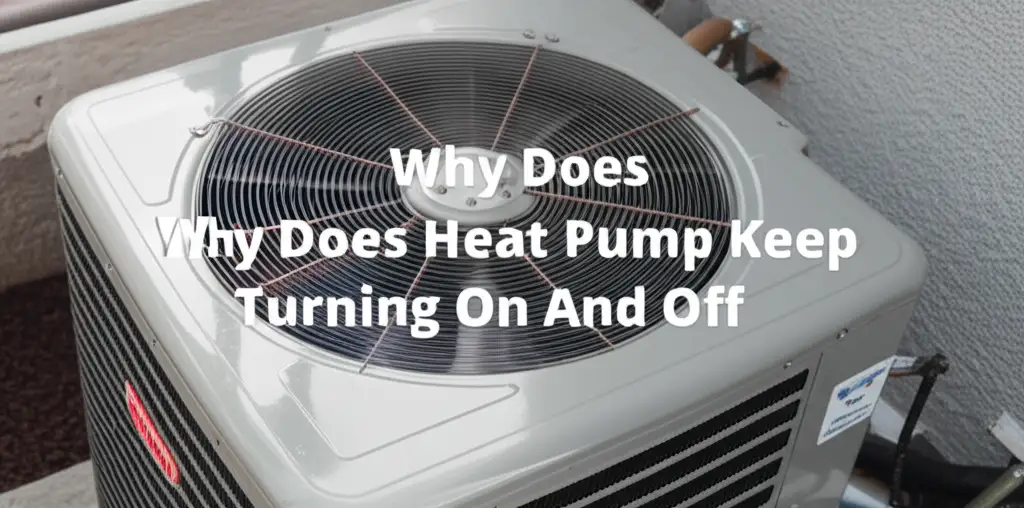
Why Your Heat Pump Keeps Turning On and Off: A Comprehensive Guide
Imagine this: you set your home’s temperature, expecting a steady comfort, but your heat pump keeps turning on and off. This constant starting and stopping, known as “short cycling,” is a common problem. It is annoying, and it can also signal deeper issues with your system. This behavior wastes energy and can damage your heat pump over time.
You might wonder, “Why does my heat pump keep turning on and off?” Many factors cause short cycling. These range from simple fixes like dirty air filters to more involved electrical or refrigerant issues. Understanding these causes helps you find a solution. This article explains why your heat pump short cycles. We will cover common problems and provide actionable steps to address them. You will learn how to restore your heat pump’s efficient operation.
Takeaway
- Check your thermostat settings: Ensure it is correct and has fresh batteries.
- Inspect air filters: A dirty filter restricts airflow, causing the heat pump to struggle.
- Clean coils: Both indoor and outdoor coils need to be free of dirt and debris.
- Look for refrigerant leaks: Low refrigerant causes the system to work harder and cycle faster.
- Call a professional: Complex issues like electrical faults or improper unit sizing require expert help.
A heat pump keeps turning on and off, or short cycling, because of an underlying issue preventing it from completing a full heating or cooling cycle. Common reasons include thermostat problems, airflow restrictions from dirty filters or coils, low refrigerant levels, electrical malfunctions, or an incorrectly sized unit for your home.
Understanding Heat Pump Short Cycling
Your heat pump performs a vital role in home comfort. It moves heat to cool or warm your space. A normal cycle involves the heat pump running for a period, reaching the set temperature, and then turning off. It stays off until the temperature shifts. When your heat pump keeps turning on and off, it is short cycling. This means the system runs for a very short time. It then shuts down before completing its cycle.
This repeated starting and stopping causes problems. It puts extra strain on the compressor. The compressor is the heart of your heat pump. Frequent stops and starts cause wear and tear. This shortens the unit’s lifespan. Short cycling also leads to higher energy bills. The heat pump uses more electricity when it starts up than when it runs steadily. Constant cycling makes your home less comfortable. It struggles to maintain a consistent temperature. You might notice cold spots or inconsistent warmth. Understanding this behavior is the first step to fixing it.
Common Causes: Thermostat Issues
The thermostat acts as your heat pump’s brain. It tells the system when to turn on and off. If the thermostat has a problem, your heat pump might short cycle. This is often an easy fix.
One common issue is incorrect settings. Someone might have set the temperature too close to the current room temperature. For example, if your home is 70 degrees and you set the thermostat to 69 degrees, the heat pump may turn on briefly, reach 69, and then turn off quickly. This can happen repeatedly. Always make sure your temperature settings allow for a proper cycle. Another problem could be the thermostat’s location. If it is in direct sunlight or near a heat source, it will read a higher temperature. This makes the heat pump turn off prematurely. Move the thermostat if possible.
Low batteries in a digital thermostat can also cause short cycling. The thermostat might not send clear signals to the heat pump. This leads to erratic behavior. Replacing the batteries often solves this issue. A faulty thermostat sensor is another possibility. If the sensor cannot accurately read the room temperature, it sends incorrect signals. This results in the heat pump turning on and off too frequently. Sometimes, internal wiring problems in the thermostat itself can cause communication errors. If simple fixes do not work, consider checking for a faulty thermostat. You might need to replace it. A properly working thermostat ensures your heat pump receives accurate commands. This helps it run efficiently. Learn more about how a heat pump might interact with other heating elements and affect its cycling: Does Heat Pump Shut Off When Auxiliary Heat Is On.
Common Causes: Airflow Restrictions
Good airflow is crucial for your heat pump to work correctly. When airflow gets blocked, the system struggles. This struggle often leads to short cycling. Blockages force the heat pump to work harder. It overheats or senses a problem and shuts down too soon.
Dirty Air Filter
A dirty air filter is a very common culprit. The filter catches dust, dirt, and debris. Over time, it gets clogged. A clogged filter blocks air from moving freely into the heat pump. This restricted airflow makes the heat pump’s fan work harder. It reduces the amount of heat the coils can absorb or release. This makes the system less efficient. It can cause the heat pump to overheat and then shut off quickly. Regularly check your air filter. Replace it at least every one to three months. This simple step can prevent many problems.
Clogged Evaporator or Condenser Coils
Your heat pump has two sets of coils: evaporator coils inside and condenser coils outside. Both can accumulate dirt and grime. Indoor evaporator coils can get covered in dust and mold. This reduces their ability to absorb heat from the air. Outdoor condenser coils collect leaves, dirt, and outdoor debris. This prevents them from releasing heat properly. When coils are dirty, heat transfer becomes inefficient. The system has to run longer to achieve the desired temperature. However, if the coils get too dirty, the system can overheat or ice up. This triggers safety mechanisms that shut it down. Cleaning your heat pump coils is essential maintenance. Learn how to do it effectively here: How to Clean Heat Pump Coils. Keeping coils clean helps ensure proper heat exchange and prevents short cycling.
Blocked Vents or Ducts
Obstructions in your home’s vents or ductwork also reduce airflow. Furniture, rugs, or curtains can block supply registers. Closed damper valves in the ductwork restrict air distribution. Sometimes, ducts can become leaky or crushed. This means air escapes before reaching its destination. Reduced airflow from blocked vents or ducts puts a strain on the heat pump. The system cannot properly circulate air. It struggles to reach the set temperature. This can make the heat pump turn off too quickly. Ensure all vents are open and clear. Have your ductwork inspected for blockages or leaks if you suspect a problem. Proper airflow is vital for the heat pump’s health and efficient operation.
Common Causes: Refrigerant Problems
Refrigerant is the lifeblood of your heat pump. It absorbs and releases heat as it cycles through the system. Problems with refrigerant levels significantly affect performance. These issues often lead to short cycling.
Low Refrigerant Levels (Leaks)
The most common refrigerant problem is low levels. Heat pumps are sealed systems. Refrigerant should not deplete over time. If levels are low, it almost always means there is a leak. A leak allows refrigerant to escape. When refrigerant levels are low, the heat pump struggles to transfer heat. It cannot properly absorb heat from one area and release it into another. This makes the compressor work harder. The system tries to compensate for the lack of refrigerant. This causes it to overheat. As a safety measure, the heat pump will shut down quickly. This leads to short cycling.
Detecting a refrigerant leak can be difficult. You might hear a hissing sound. You might also see ice buildup on the outdoor unit’s lines or coils. Ice on the outdoor unit can be a sign of low refrigerant or other issues that cause freezing. For more details, consider reading: Why Does My Air Source Heat Pump Freeze Up. A professional HVAC technician uses special tools to find and fix leaks. They also recharge the system with the correct amount of refrigerant. Attempting to add refrigerant yourself is not recommended. It requires specific knowledge and tools.
Overcharged Refrigerant
While less common than low refrigerant, an overcharged system can also cause problems. This happens when too much refrigerant is put into the system. An overcharge can increase pressure within the heat pump’s components. High pressure makes the compressor work harder than it should. This excessive strain can lead to overheating. Just like with low refrigerant, the heat pump’s safety controls might shut it down. This prevents damage. This results in short cycling. An overcharged system also reduces efficiency. It forces the heat pump to consume more energy. Only a qualified technician can accurately diagnose and correct an overcharge. They will remove the excess refrigerant to bring the system back to proper operating levels.
Both low and overcharged refrigerant issues require professional attention. Ignoring these problems will lead to severe damage to your heat pump’s compressor. Compressor replacement is very expensive. Addressing refrigerant issues quickly helps maintain your heat pump’s efficiency and extends its lifespan.
Common Causes: Electrical and Component Failures
Heat pumps rely on various electrical components to operate. When these parts fail, the entire system can act erratically. This often results in the heat pump turning on and off too frequently. Electrical problems can be dangerous. They often require professional diagnosis and repair.
Faulty Capacitors
Capacitors are like batteries for your heat pump’s motors. They provide a jolt of electricity needed to start the fan motor or compressor. If a capacitor is weak or failing, it cannot provide enough power. The motor might try to start but fail. It will then shut down quickly. This can lead to rapid cycling as the system attempts to start repeatedly. A common sign of a bad capacitor is the outdoor unit making a humming sound but not starting. Sometimes, the fan spins slowly or not at all. Replacing a faulty capacitor usually restores normal operation. This job requires caution due to high voltage.
Compressor Issues
The compressor is the heart of your heat pump. It compresses the refrigerant. This process is essential for heating and cooling. If the compressor is failing, it may struggle to start. It might run for only a short period. Then it overheats and shuts down. This directly causes short cycling. Compressor failure can stem from many issues. These include lack of lubrication, old age, or electrical problems within the compressor itself. A failing compressor often makes unusual noises. These include grinding, rattling, or loud humming sounds. Compressor replacement is one of the most expensive heat pump repairs. It sometimes warrants replacing the entire unit.
Electrical Wiring Problems
Loose or damaged electrical wiring can disrupt communication within the heat pump system. This includes wiring to the thermostat, control board, or individual components. Poor connections can cause intermittent power supply. This makes the heat pump start and stop unexpectedly. For example, if the wiring to a safety switch is faulty, the heat pump might trip the switch. This causes it to turn off. Then it resets and turns on again. This cycle repeats. Electrical issues also pose fire hazards. Never attempt to fix electrical wiring unless you are a qualified electrician. Always have a professional inspect and repair electrical problems. They can safely diagnose and fix the issue.
Safety Switches
Heat pumps have several safety switches. These protect the unit from damage. Examples include high-pressure switches, low-pressure switches, and high-temperature limit switches. If any of these switches detect an abnormal condition, they will shut down the heat pump. This prevents damage. For instance, if refrigerant pressure gets too high or too low due to a leak or blockage, a switch trips. The heat pump turns off. Once the condition normalizes (or if the switch is faulty), the unit might try to restart. This leads to constant on-off cycles. A technician can test these switches to see if they are working properly. Sometimes, the switch itself is faulty. Other times, the condition triggering the switch (like low refrigerant) needs fixing. A common issue is a heat pump tripping its breaker. For example, a pool heat pump might trip a breaker if there’s an electrical issue: Why Does My Pool Heat Pump Keep Tripping The Breaker.
Common Causes: Unit Sizing and Installation Errors
Even a brand new heat pump can short cycle if it is not the right size or was installed incorrectly. These issues are often overlooked. However, they significantly impact your system’s performance.
Oversized Heat Pump
An oversized heat pump is too powerful for your home’s needs. It generates or removes heat too quickly. It reaches the thermostat’s set temperature in a very short time. Once the temperature is met, the system shuts off. Because it overshoots the target so quickly, it does not run long enough to properly dehumidify the air. It also does not distribute air evenly. The temperature then quickly drifts away from the set point. This causes the heat pump to turn on again almost immediately. This cycle repeats constantly. An oversized unit cycles more frequently. This causes excess wear and tear on components, especially the compressor. It also uses more energy during startup phases. Proper sizing requires a load calculation for your home. This considers insulation, windows, and climate.
Undersized Heat Pump
While less likely to cause short cycling, an undersized heat pump can also lead to issues. An undersized unit struggles to reach the set temperature. It runs almost constantly trying to keep up. This can make you feel like it is not turning off, or it struggles to complete a cycle. It runs for very long periods. It might then turn off briefly from overheating before turning on again. This type of constant running is sometimes mistaken for short cycling. An undersized unit will not provide adequate comfort. It also costs more to operate. This is because it is always working at its maximum capacity. For context on normal heat pump operation, understand that a heat pump does not necessarily run all the time: Does An Air Source Heat Pump Run All The Time. Short cycling is different from normal, longer cycles.
Improper Installation
Even if the heat pump is the correct size, poor installation can lead to short cycling. Incorrect refrigerant charge during installation is a common problem. The installer might have added too much or too little refrigerant. This directly affects efficiency and component lifespan. Ductwork issues are another concern. Leaky ducts lose conditioned air before it reaches rooms. Ducts that are too small restrict airflow. Both situations force the heat pump to work harder. They can cause it to short cycle due to inefficiency or overheating. Incorrect wiring or improper connection of electrical components also leads to problems. This can result in erratic operation or safety trips. Proper installation by a certified HVAC technician is critical for a heat pump’s long-term performance and efficiency. An incorrectly installed system will struggle to operate reliably. Fixing installation errors often requires professional intervention. They can diagnose the specific faults and correct them.
When to Call a Professional
Many simple heat pump issues are fixable by a homeowner. You can replace a dirty filter or change thermostat batteries. However, some problems are complex or dangerous. These require the skills of a certified HVAC professional. Knowing when to call an expert saves you time, money, and potential hazards.
Safety Concerns
Any electrical issue is a major safety concern. Exposed wires, burning smells, or sparks indicate a serious problem. Never attempt to fix these yourself. Refrigerant leaks also pose health and environmental risks. Refrigerant is a chemical. It should only be handled by trained technicians. If you suspect an electrical fault or a refrigerant leak, turn off your heat pump. Then call a professional immediately. They have the tools and training to handle these safely.
Complex Diagnostics
Short cycling can have many causes. Diagnosing the exact problem sometimes requires specialized tools. Technicians use pressure gauges to check refrigerant levels. They use multimeters to test electrical components. They have thermal cameras to spot heat transfer issues. If you have checked the basic causes and your heat pump still short cycles, it is time for an expert. They can accurately pinpoint the root cause. This prevents you from guessing or making things worse.
Specialized Repairs
Fixing issues like a faulty compressor, a bad control board, or an incorrectly sized unit demands specialized knowledge. These repairs are complex. They often involve expensive parts. They also require specific technical skills. For example, repairing a refrigerant leak involves finding the leak, fixing it, and recharging the system precisely. This is not a DIY task. An HVAC technician can perform these repairs correctly. They ensure your heat pump runs safely and efficiently after the fix. They also offer warranties on their work.
Regular Maintenance
Even if your heat pump is not short cycling, regular professional maintenance is wise. Annual tune-ups help prevent problems before they start. A technician can clean coils thoroughly. They can check refrigerant levels. They can inspect electrical connections. They can identify worn parts. This proactive approach catches minor issues before they become major repairs. This extends your heat pump’s life. It keeps it running at peak efficiency. Regular maintenance helps avoid unexpected breakdowns and costly emergency repairs. Preventative care is often the best solution for long-term reliability. If your heat pump, like a Daikin, is constantly turning off, it’s often a sign that professional attention is needed: Why Does My Daikin Heat Pump Keep Turning Off.
FAQ Section
What does “short cycling” mean for a heat pump?
Short cycling means your heat pump turns on and off very frequently. It does not complete a full heating or cooling cycle. Instead, it runs for brief periods, sometimes just minutes, before shutting down. This behavior is inefficient. It puts stress on the system’s components, especially the compressor. It can lead to higher energy bills and reduced system lifespan.
Can a dirty air filter cause short cycling?
Yes, a dirty air filter is a very common cause of short cycling. A clogged filter restricts airflow to your heat pump. This makes the system work harder to move air. It can cause the heat pump to overheat or to struggle to reach the desired temperature. This often triggers safety mechanisms that shut it down quickly.
How often should I replace my heat pump’s air filter?
You should replace your heat pump’s air filter every 1 to 3 months. The exact frequency depends on several factors. These include how often you use your heat pump, if you have pets, or if someone in your home has allergies. Regularly checking your filter and replacing it when it looks dirty is a good practice.
Is low refrigerant a serious problem if my heat pump is short cycling?
Yes, low refrigerant is a serious problem. It almost always indicates a leak in the sealed system. Low refrigerant levels prevent proper heat transfer. This forces the compressor to work harder. This causes it to overheat and short cycle. Ignoring a refrigerant leak can lead to severe and costly damage to the compressor.
Can I fix heat pump short cycling myself?
You can fix some common causes of short cycling yourself. These include replacing a dirty air filter, checking thermostat batteries, or clearing blocked vents. However, issues like refrigerant leaks, electrical faults, or compressor problems require a certified HVAC professional. Attempting complex repairs yourself can be dangerous and cause more damage.
How much does it cost to fix a short cycling heat pump?
The cost to fix a short cycling heat pump varies widely. Simple fixes like a new air filter or thermostat batteries are inexpensive. Repairing a refrigerant leak can cost a few hundred dollars. Replacing a faulty capacitor might be similar. Major component failures, like a compressor replacement, can cost thousands of dollars. Professional diagnosis often costs around $100-$200.
Conclusion
When your heat pump keeps turning on and off, it signals a problem. This “short cycling” affects your comfort. It also increases energy costs and shortens your system’s life. We have explored many reasons for this behavior. These include simple issues like a dirty air filter or a faulty thermostat. More serious problems involve refrigerant leaks, electrical failures, or incorrect unit sizing.
Taking action quickly saves you money and trouble. Start by checking the easy fixes. Look at your thermostat settings. Replace your air filter. Clear any blocked vents. If these simple steps do not work, it is time to call a professional. Complex problems like refrigerant issues or electrical faults need expert care. A qualified HVAC technician can diagnose the exact cause. They can perform the necessary repairs safely and correctly. Regular maintenance also helps prevent short cycling. It keeps your heat pump running efficiently for years. Do not let your heat pump’s constant on-off cycle continue. Address the issue promptly. Enjoy consistent comfort and lower energy bills. Contact a trusted HVAC professional today for a comprehensive inspection. Ensure your home stays comfortable.
- heat pump troubleshooting
- short cycling
- HVAC repair


